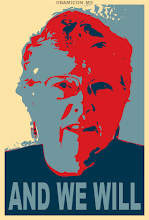2007 National Book Award Young People's Literature Winner
The Absolutely True Diary of a Part-Time Indian
Little, Brown & Company
Interview conducted by Rita Williams-Garcia.
RWG: Now that it's all said and done, what is the story decision that you are most proud of?
SA: I suppose I'm most proud of telling the story in first person. I worried that my highly autobiographical novel would be just thinly disguised memoir if I wrote in the first person. And I was equally worried about writing yet another first-person YA novel, featuring yet another highly sensitive protagonist. So, yes, I did write an early draft in the third person, but that narrative distance created an emotional distance as well. And I realized that I was afraid of the first person because I was afraid of my own history. I'm not a fearful person, onstage or in my books or anywhere else, so I was nearly debilitated by my fear. I wasn't sure I was going to be able to finish the book. But with much support from my family, my agent Nancy, and my editor Jennifer, I was able to proceed.
RWG: You are amongst friends. Which scene made you pee on yourself as you wrote it? (Don't even front. I know you peed.)
SA: I peed with laughter when I wrote the "metaphorical boner" discussion between Arnold, my Spokane Indian protagonist, and Gordon, his new friend and white boy genius. I just loved the thought of two adolescent males discussing books with as much sexual ferocity as most boys (and men) discuss women.
RWG: Arnold is a comic book artist and a self-described book kisser who stands up to Tolstoy. What is literacy to Arnold?
SA: Wow, that's an interesting question. I suppose Arnold would think that literacy is a form of self-defense. If one reads enough books one has a fighting chance. Or better, one's chances of survival increase with each book one reads. I love that Arnold takes on Tolstoy (I would have never had that kind of courage) and I'm a little miffed that you're one of the few interviewers to bring it up. In fact, I change my mind about the first question above. I'm most proud that Arnold, a rez boy, has enough courage to disprove the universally accepted literary maxim that happy families are all alike when, in fact, it is the unhappy families who are most similar, especially on a reservation.


Links to this post:
Create a Link
<< Home